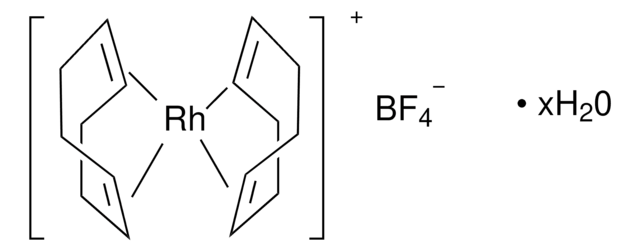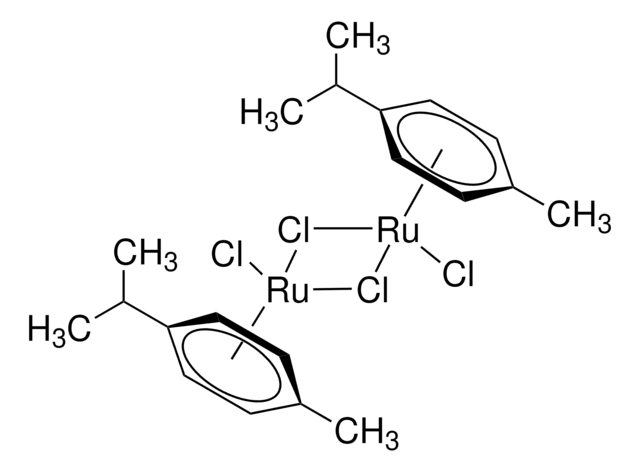667412
Pentamethylcyclopentadienyltris (acetonitrile)ruthenium(II) hexafluorophosphate
Synonym(s):
[RuCp*(MeCN)3]PF6
About This Item
Recommended Products
form
solid
reaction suitability
core: ruthenium
reagent type: catalyst
storage temp.
2-8°C
SMILES string
[Ru+].CC#N.CC#N.CC#N.F[P-](F)(F)(F)(F)F.CC1C(C)=C(C)C(C)=C1C
InChI
1S/C10H16.3C2H3N.F6P.Ru/c1-6-7(2)9(4)10(5)8(6)3;3*1-2-3;1-7(2,3,4,5)6;/h6H,1-5H3;3*1H3;;/q;;;;-1;+1
InChI key
IYEMDYLFXFMECZ-UHFFFAOYSA-N
General description
Application
Signal Word
Warning
Hazard Statements
Precautionary Statements
Hazard Classifications
Eye Irrit. 2 - Skin Irrit. 2 - STOT SE 3
Target Organs
Respiratory system
Storage Class Code
11 - Combustible Solids
WGK
WGK 3
Flash Point(F)
Not applicable
Flash Point(C)
Not applicable
Personal Protective Equipment
Choose from one of the most recent versions:
Already Own This Product?
Find documentation for the products that you have recently purchased in the Document Library.
Customers Also Viewed
Articles
Vinyl-metal reagents play a pivotal role in organic synthesis. Among the vinyl-metal reagents available, silicon-based reagents are of increasing importance. This is largely due to their low cost, minimal toxicity, ease of handling, and the simplicity of byproduct removal.
This robust protocol for hydrosilylation of terminal acetylenes to give α-vinylsilanes using [Cp*Ru(MeCN)3]PF6, as well as a number of other catalysts for hydrosilylation, comes from the Trost group at Stanford University.
Our team of scientists has experience in all areas of research including Life Science, Material Science, Chemical Synthesis, Chromatography, Analytical and many others.
Contact Technical Service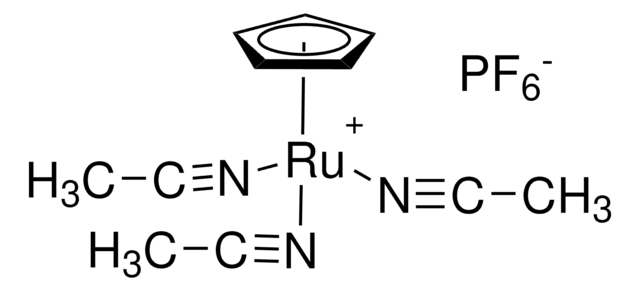
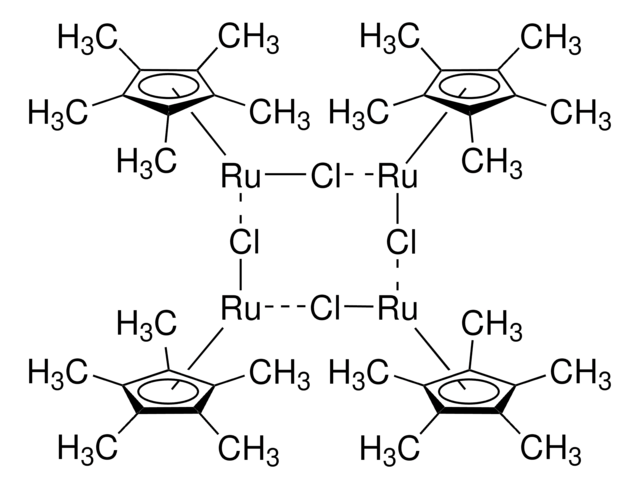


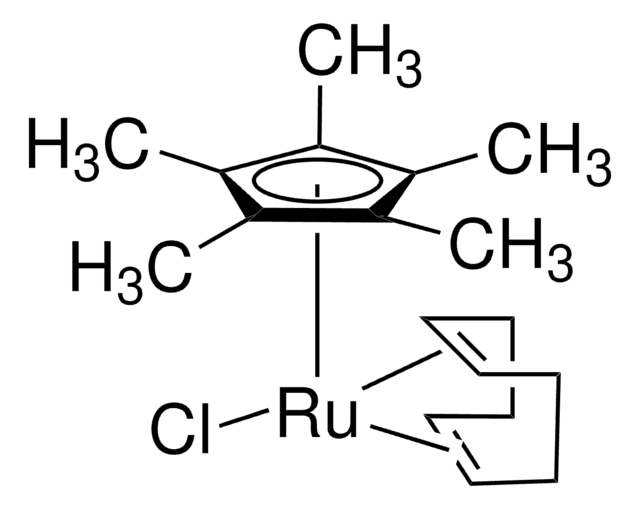

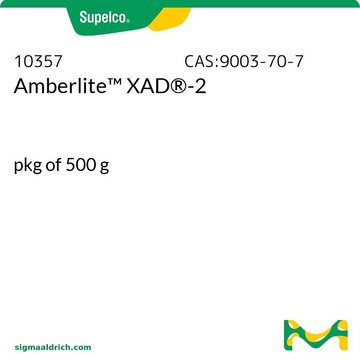

![[Ir(dtbbpy)(ppy)2]PF6](/deepweb/assets/sigmaaldrich/product/structures/158/329/2544d673-d267-4aa1-8f46-2652aad4bfa0/640/2544d673-d267-4aa1-8f46-2652aad4bfa0.png)

